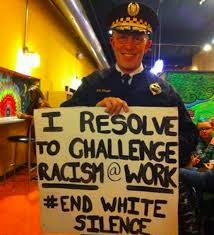Cameron McLay is a good cop and wants to be a good chief of police for Pittsburgh. Even as police nationwide continue to shoot people of color, particularly African Americans, as if it’s hunting season, in McLay’s two years as police chief, complaints against Pittsburgh police are way down and lawsuits against the city have dropped by 50 percent. In these two years City of Pittsburgh police have also avoided the stark, racist shootings and beatings of black folk that have sparked outrage, protests and rebellions across the country.
That’s saying something for a department once cited by the Justice Department for using excessive force, making false arrests, carrying out improper searches and seizures, and failing to supervise and discipline rogue officers.
But the majority of rank-and-file officers have “no confidence” in their chief, as demonstrated by a recent poll taken by their union, the FOP. That poll is nonbinding and the last Pittsburgh chief to lose one ended up serving ten more years, but one shouldn’t count on such an outcome in today’s law-and-order America. A spike in crime (visible crime against people and property, that is; not the white-collar kind), the rise of a charismatic politician adept at playing the law-and-order (or race) card, or any number of unforeseeable occurrences could turn McLay into a casualty of his good intentions.
McLay has staked his legacy as chief on community policing – repairing, building and maintaining relationships with the people of the communities that his force polices. Coming to Pittsburgh from Madison, Wisconsin, he has been vocal in criticizing the old department’s ways and proactive in making changes.
There’s one thing McLay cannot change: the police protect some communities and police others. There is never much tension between the police and the protected communities, but the second type of community often experiences the police as an occupying force. McLay is trying to change how black communities are policed, but is he – or his boss, the mayor – even aware of the larger protected/policed dichotomy?
But just being nicer to oppressed communities is too much for many current cops. McLay alienated many of his troops after just two months on the job when, after a meeting with anti-racism activists, he posted this photo on his Twitter account:
McLay closed his account and took down the photograph, but didn’t apologize for the sentiments expressed by the sign he carried. As the months and years passed, his transgressions against the cops continued. He fired bully Stephen Matakovich, famously caught on video beating a teenager outside Heinz Field; he made cops work security for the hated Beyonce’s concert; he wouldn’t let them wear riot gear at a Trump event earlier this year; and, the final straw, he appeared at the Democratic National Convention in uniform.
McLay’s speech didn’t endorse Hillary Clinton, but the FOP usually endorses Republican presidential candidates, as it did again this year. And what McLay was endorsing is much worse than Hillary Clinton to many cops – the sanctity of black lives. McLay appeared during a DNC program segment featuring “Mothers of the Movement” – people who had lost loved ones to police violence including the mothers of Trayvon Martin, Eric Garner, Hadiya Pendleton, and Sandra Bland.
This willingness to co-exist with the Black Lives Matter movement was too much for Pittsburgh FOP president Robert Swartzwelder and his backers. They began pushing for a “vote.”
Right now McLay continues to have the backing of Mayor Peduto, city council and, most crucially, the black community. He will need all that support and more to stay the course in the months to come. Changing the way oppressed communities are policed won’t do away with the oppression, but we’ll take any break we can get.
Do the wrong thing
Stephen Mader of Weirton tried to be a good cop, but he was fired last spring for refusing to shoot suspect Ronald Williams Jr. of Pittsburgh. In official City of Weirton-ese, Mader “failed to eliminate a threat.” The “threat,” a young distraught African-American, was carrying an unloaded weapon.
Mader was a Marine Corp veteran and had been on the Weirton force for less than a year. He took his use-of-force training from both institutions seriously and when he was confronted with a suspect who was, in Mader’s judgment, mentally unstable and trying to commit “suicide by cop,” Mader refused to shoot and used words to calm the suspect down. Unfortunately, two of his colleagues arrived late on the scene, got Williams so agitated that he began waving the gun, so one of the newcomers shot him dead.
Mader felt bad about the whole affair but didn’t blame his coworkers, who didn’t have as much information to work with. However, Mader’s superiors – the chief of police and the city manager – knew a bad apple when they saw one and fired Mader, who refused out of principal to resign as that would have been an admission of wrongdoing.
Maybe Stephen Mader would like to come to Pittsburgh to work for Cameron McLay.
— James Collins

The Weirton case becomes even more ludicrous when you hear them try to deny the man was fired for not shooting, saying instead he was fired for two prior incidents. In one of these incidents he was accused of swearing at a citizen-like cops do every $!#&%% day! In the other he was with two much more senior officers, and all three of them chose not to report a death as possibly being suspicious-which, upon further investigation, it wasn’t. Neither of the senior officers faced any consequences.
LikeLike
A clarification: Hadiya Pendleton of Chicago was not killed by police violence, as the post suggested, but rather by gang violence. Her mother was at the DNC as part of the Mothers of the Movement. Which disproves the right-wing argument that the Movement for Black Lives doesn’t care about community violence.
LikeLike